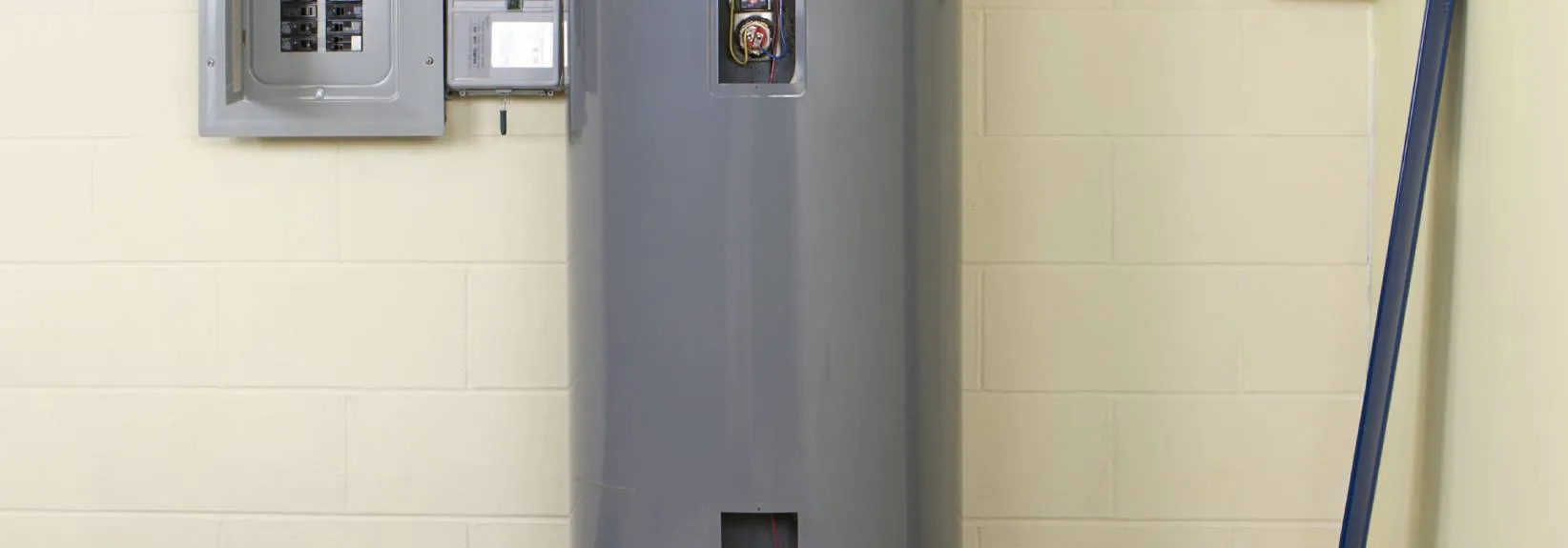Depending on where you live, mild weather or severe cold may be ordinary this winter. Regardless, your water heater has to work harder when the temperature drops outside. This prompts the question — can water heaters freeze?
Although very rare, it’s certainly not impossible for a water heater to freeze. The leading concern is that any standing water inside the tank or tankless unit will freeze and expand, ruining the appliance along the way. If this happens, you may be left with no alternative but to replace the water heater.
Now, it’s worth mentioning that modern water heaters are built to stay operational regardless of how cold the weather is. Nonetheless, it doesn’t hurt to take precautions if bitter cold temps are heading your way, particularly if your water heater is installed outside.
Drain the Water Heater
Before going away on an extended trip this winter, consider draining the water heater to bypass a plumbing disaster while you’re away. You can also drain the tank if there is a power blackout to avoid possible freezing. To provide greater comfort and security, you may want to install a freeze protection solenoid valve, which opens automatically and drains the water heater during a power outage.
Here’s a step-by-step guide to walk you through it:
-
- Turn off the cold-water supply valve, gas supply valve, and temperature control knob.
-
- Flip the circuit breaker providing electricity to the water heater.
-
- Attach a hose to the drain valve or place a bucket underneath it to capture the water.
-
- Open the valve to create the flow of water.
-
- Keep draining until the tank is empty, then close the valve.
Leave the Water Running
Think about leaving a trickle of hot water flowing from a faucet or two until the arctic cold weather subsides. The resulting slight increase in your water bill is well worth preventing a frozen water heater. This method also helps reduce the risk of frozen and burst pipes.
Install Insulation
Plumbing insulation comes in many forms. You can insulate your water heater tank with a special blanket to help cut down on standby heat loss and deliver protection against cold weather.
Obviously, pipes are more likely to freeze than water heaters. Along with running a trickle of hot water, you can shield exposed pipes located outside or along exterior walls by wrapping them in foam insulation. You can also install electric heat tape to keep the pipes just above freezing. Only a few types of heat tape are compatible with insulation, so read the directions for use carefully if you plan to use them together.
Put in a Hot Water Recirculation System
The basic goal of this system is to move hot water to the tap rapidly, shortening the wait time and reducing the amount of water that flows down the drain. A hot water recirculation system is convenient, water-wise and energy-efficient. It also keeps your pipes warm in the winter and makes your tankless water heater less susceptible to freezing. These paired benefits could warrant the installation cost, especially in cold climates.
Pick a Suitable Installation Spot
Almost all North American homes have indoor water heaters. But, in mild southern climates, water heaters are occasionally installed in the garage or even outside. While this approach is perfectly safe most of the time, the rare deep freeze can have ruinous effects on outdoor water heaters. Consequently, you should insist that your next water heater be placed inside, or at minimum in a covered location sheltered from the wind.
Choose a Water Heater with Built-In Freeze Protection
The majority of tankless water heaters have built-in freeze protection that works in temperatures down to -22 degrees F. The next tankless water heater that you buy should have this, especially if the only alternative is to install it outside.
Different manufacturers use different freeze-prevention methods. Some have an electric element that provides a sufficient amount of heat to protect against internal freezing. Others fire up the gas burners to warm a small amount of water and, in short, keep the tankless cabinet frost-free.
Whatever the method, water heater freeze protection is only helpful when utilized. First, check the unit to make sure this feature is activated. Then, for protection during a blackout, look into investing in a small portable generator, whole-home standby generator, or battery backup power supply for your tankless water heater.
Schedule Water Heater Services
For answers to questions about your pipes or water heater possibly freezing this winter, turn to Service Experts Heating & Air Conditioning. Our well-trained plumbers can perform any
water heater repair or replacement you need. We can also propose steps to help your pipes and plumbing appliances last longer in any weather. For more information or to plan a visit, please contact a
Service Experts office near you today.


